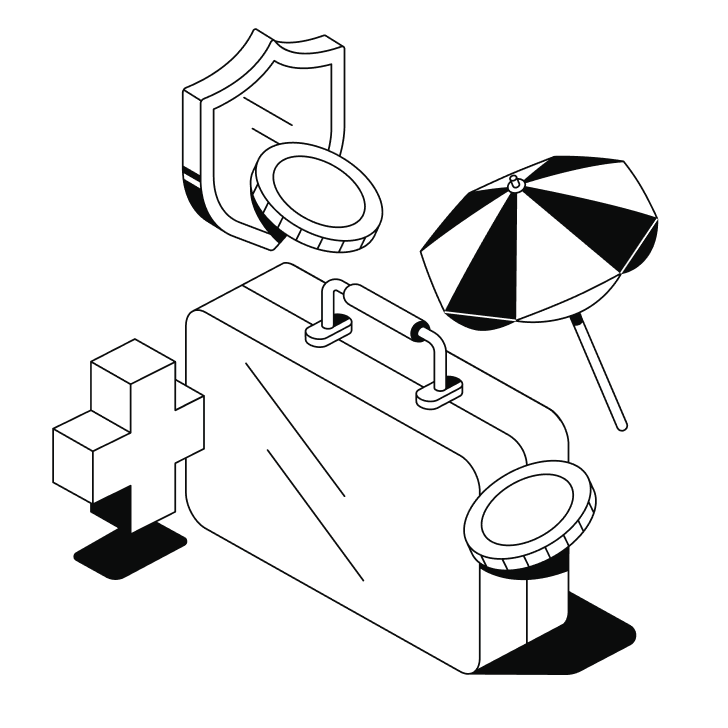
Why does a business need insurance?
Why does a business need insurance?
Accidents, emergencies, data breaches, and lawsuits can happen to businesses of all sizes. The right-sized business insurance solution can help protect your business, your employees, and your hard work. Learn more about commercial insurance.

What does business insurance cover?
Commercial General Liability Insurance
Helps protect your small or mid-sized business against third-party claims alleging bodily injury, property damage, and personal and advertising injury.
Professional Liability (E&O) Insurance
For those who are liable to provide professional advice and services, E&O (errors & omissions) insurance helps provide coverage if a client alleges work is inadequate or negligent.
Business Owner’s Policy (BOP)
BOPs combine commercial property insurance, general liability insurance and sometimes additional coverages into a single policy.
Cyber Insurance
Cyber insurance can help provide your small or mid-sized business with coverage for the costs of cyber attacks, data breaches, and other related risks.
Business and insurance solutions for every kind of company.
Aerospace & Aviation
We help small and mid-sized aviation businesses by providing solutions for their unique goals. With specialized small business insurance expertise and a commitment to personalized service, we can help you protect your people, assets, and operations so you can focus on what’s next and grow with confidence.
Agriculture, Farm & Equine
For operations of any size, our team of professionals is on your side with expertise in agriculture, farm, and equine operations. We can provide personalized insurance solutions to support your goals and help you cultivate a legacy.
Construction
We help you reduce your total cost of risk and protect the assets of your small or mid-sized construction business with tailored solutions.
Consumer Services
We understand the unique insurance needs of your small or mid-sized service industry business.
Healthcare
Providing healthcare services is an admirable mission. Let us help you protect your unique healthcare business with insurance solutions that fit.
Manufacturing
Manufacturing businesses have unique insurance needs and liabilities to cover. Let us help you find a personalized insurance solution.
Professional Services
We help you protect your small or mid-sized business with the right insurance solutions so you can focus on providing outstanding service.
Real Estate & Multifamily
While you're dealing with nearly constant client communication and concerns, we can help you protect small and mid-sized businesses with the right insurance solution.
Recreation & Entertainment
It's all fun and games until there is an insurance claim. Help protect your recreation business with the right insurance.
Restaurants & Hospitality
We help you find the right business insurance solution for your restaurants or hospitality business so you can keep on serving your customers.
Retail
The right business insurance solution can help give you peace of mind so you can focus on growing your business with the right products and services for your customers.
Skilled Trades
Your skills, talent, and drive have helped you build your small business. Help protect your hard work with the right business insurance solution.







